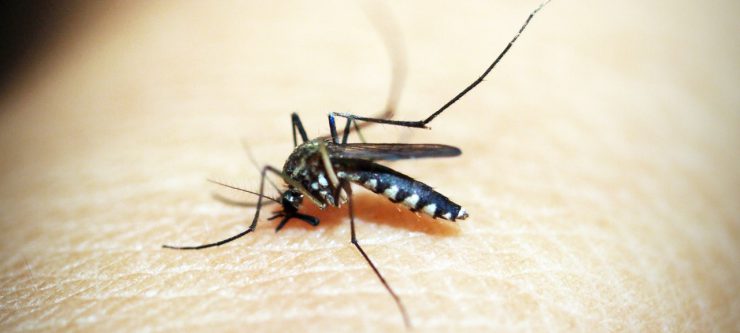Few things ruin an evening in the backyard like the constant hum and annoying nibbles from mosquitoes. If you want to be able to enjoy the outdoors and host guests on your patio without worrying about the little pests, try these tactics to keep mosquitoes out of your yard.
A quick lesson in mosquitoes
Backyards are heaven to mosquitoes because they love:
- Standing water to lay their eggs
- Bushes and trees for somewhere cool and shaded to hang out in
- Carbon dioxide from your breath, which lets them know there’s a tasty meal nearby
Remove standing water
Since mosquitoes use stagnant, standing water to lay eggs, eliminating any from your yard will stop the problem before it starts. Get rid of unused birdbaths, buckets, tires, tarps or watering cans that can collect water.
Remove dead vegetation
Some mosquitoes lay eggs in wet, decaying vegetation. Clean your yard of any wet logs or piles of decomposing leaves and sticks. Even damp soil can be a breeding ground. Try to clear the area to give sunlight to dirt that is consistently wet.
Use repellent yard sprays
Several companies make mosquito repellent concentrate that attaches to a garden hose. Spray your lawn, shrubs, trees and problem areas early in the summer or a few days before an outdoor party to keep mosquitoes and other flies away.
Set out scented repellents
If you’re planning on hanging out around your deck or patio, try using scented mosquito repellents. You can buy candles, lanterns and incense sticks that produce odors that keep bugs at bay while smelling good to you and your guests.
Use a fan on your patio or deck
This may seem silly to do at first, but it can be pretty effective. If you’re outside on a day or evening without wind, set out a fan to move the air around. Mosquitoes are weak fliers, so any breeze is going to send them elsewhere (plus it keeps you cool on hot days).
Moving air also disperses the carbon dioxide you exhale, making mosquitoes less likely to spend time in the area.
Burn Pinon wood in your fire pit
Along with setting a record for most spelling variations, Pinon (or Pinion or Pinyon or Piñon) wood is burned in outdoor fire pits and bonfires during buggy months. The smoke is supposed to keep mosquitoes and flies from gathering in the area.
Flora repellents
Have a green thumb? Try planting some of these common plants that mosquitos avoid:
- Tulsi shrubs
- Catnip
- Feverfew
- Rosemary
- Lavender
- Basil
- Marigolds
- Citronelle
- Lemongrass
- Bee balm
- Ageratum
- Peppermint
- Sage
Like homeowner tips? Take a look at more how-tos for around the house.

